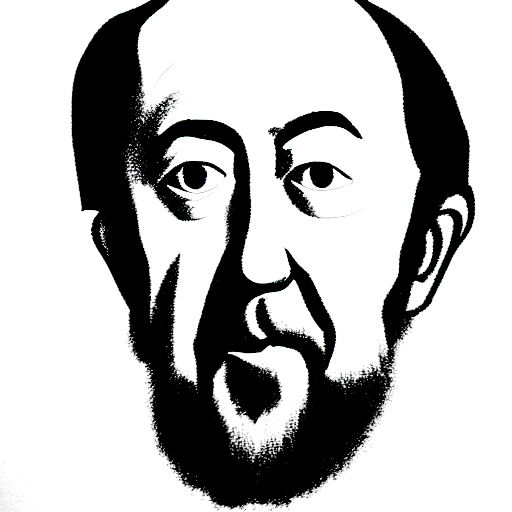Aleksandr Isayevich Solzhenitsyn (11 December 1918 – 3 August 2008) was a Russian novelist. One of the most famous Soviet dissidents, Solzhenitsyn was an outspoken critic of communism and helped to raise global awareness of political repression in the Soviet Union (USSR), in particular the Gulag system.
Solzhenitsyn was born into a family that defied the Soviet anti-religious campaign in the 1920s and remained devout members of the Russian Orthodox Church. While still young, Solzhenitsyn lost his faith in Christianity and became a firm believer in both atheism and Marxism–Leninism; in his later life, he gradually became a philosophically minded Eastern Orthodox Christian as a result of his experience in prison and the camps. While serving as a captain in the Red Army during World War II, Solzhenitsyn was arrested by the SMERSH and sentenced to eight years in the Gulag and then internal exile for criticizing Soviet leader Joseph Stalin in a private letter.
As a result of the Khrushchev Thaw, Solzhenitsyn was released and exonerated. After he had returned to the Christian faith of his childhood, he pursued writing novels about repressions in the Soviet Union and his experiences. He published his first novel, One Day in the Life of Ivan Denisovich in 1962, with approval from Soviet leader Nikita Khrushchev, which was an account of Stalinist repressions. Solzhenitsyn's last work to be published in the Soviet Union was Matryona's Place in 1963.
Following the removal of Khrushchev from power, the Soviet authorities attempted to discourage Solzhenitsyn from continuing to write. He continued to work on further novels and their publication in other countries including Cancer Ward in 1966, In the First Circle in 1968, August 1914 in 1971, and The Gulag Archipelago in 1973, the publication of which outraged the Soviet authorities. In 1974 Solzhenitsyn lost his Soviet citizenship and was flown to West Germany. In 1976, he moved with his family to the United States, where he continued to write. In 1990, shortly before the dissolution of the Soviet Union, his citizenship was restored, and four years later he returned to Russia, where he remained until his death in 2008.
He was awarded the 1970 Nobel Prize in Literature "for the ethical force with which he has pursued the indispensable traditions of Russian literature", and The Gulag Archipelago was a highly influential work that "amounted to a head-on challenge to the Soviet state", and sold tens of millions of copies.
Sol turns thousands of years of human wisdom from the world’s spiritual traditions into a totally unique personality profile. To get your own profile, check compatibility with friends and much more, download the Sol App today.
Some of their strengths
Aleksandr Solzhenitsyn has many admirable traits.
Based on spiritual traditions from around the world, they are someone who can be described as Energetic, Intuitive, Innovative, Intelligent, Practical, Charismatic, and Adventurous.
Adventurous and Independent
According to Mysticism’s Astrology tradition, Aleksandr Solzhenitsyn is someone who is an adventurous, independent, and energetic person, who is insightful, imaginative, generous, and honest. A person who defines themself by their friends and what groups they belong to.
Adventurous and Free
Based on Daoism’s Ba-Zi or ‘Chinese Zodiac’ tradition, people who know Aleksandr Solzhenitsyn well know them as someone who can be talented, wayward and free, like a big river or the ocean.
Altruistic and Innovative
According to Hinduism’s Jyotisha or ‘Vedic Astrology’ tradition, many would also describe Aleksandr Solzhenitsyn as someone who is altruistic, inventive, energetic, and socially-conscious.
Who is inventive, open-minded and inquisitive, optimistic and cooperative, and who loves working together with others.
Wise and Deep
Based on the Mayan Tzolk’in or ‘Mayan Astrology’ tradition, Aleksandr Solzhenitsyn is someone who tends to have an internal innate wisdom, and who people tend to see as an "old soul".
They are also someone who is balanced, stable, and energetic, who likes the idea of home and family, and who is very comfortable being the person in charge.
Optimistic and Quick-witted
According to Judaism’s Kabbalah tradition, Aleksandr Solzhenitsyn tends to be someone who is optimistic and spontaneous, and who has a clear and analytical mind. Who can be witty, with a happy-go-lucky- nature that makes others cheerful, and who possesses an adventurous zest for life.
Some of Aleksandr Solzhenitsyn's challenges
While Aleksandr Solzhenitsyn has many strengths, nobody is perfect. They also have some challenging traits they need to manage.
For example, Aleksandr Solzhenitsyn can be Impulsive, Careless, Indecisive, Unrealistic, Rebellious, Emotionally Distant, and Anxious.
Impulsive and Careless
One of Aleksandr Solzhenitsyn's key challenges is that they are someone who can be impulsive and careless.
Aleksandr Solzhenitsyn must also exercise caution as they can have a hard time reconciling wants and needs.
Anxious and Inflexible
Aleksandr Solzhenitsyn is someone who can be high-strung, impatient, and inflexible, who can be "penny wise and pound foolish", have poor listening skills, and who can be intolerant of people who share a different world view.
Irritable and Callous
Finally, Aleksandr Solzhenitsyn also can be short-tempered, childish, insensitive, and careless at times.

